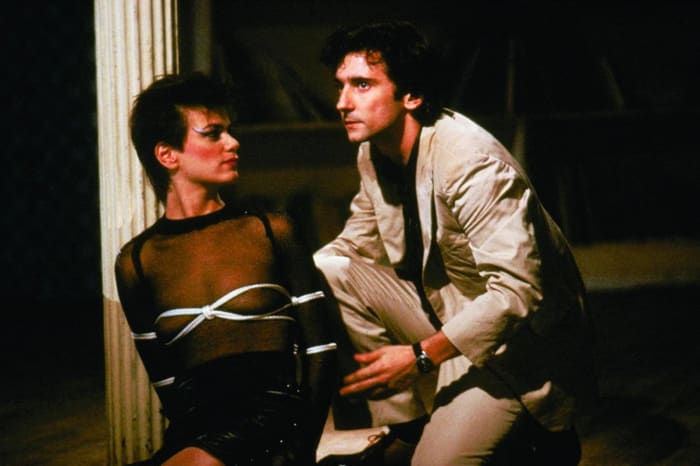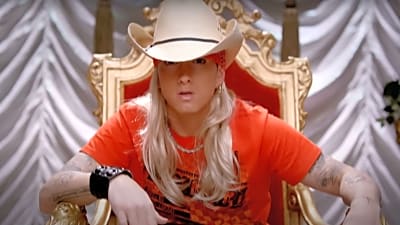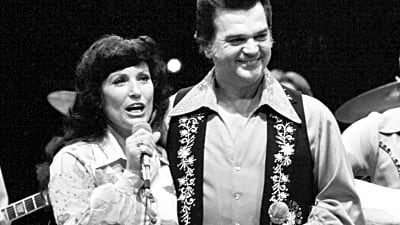- Home
- Quizzes
- My Quiz Activity
- Newsletters
- MY FAVORITES
- Add Sports/Teams
- SPORTS
-
NFL
- NFL Home
- Arizona Cardinals
- Atlanta Falcons
- Baltimore Ravens
- Buffalo Bills
- Carolina Panthers
- Chicago Bears
- Cincinnati Bengals
- Cleveland Browns
- Dallas Cowboys
- Denver Broncos
- Detroit Lions
- Green Bay Packers
- Houston Texans
- Indianapolis Colts
- Jacksonville Jaguars
- Kansas City Chiefs
- Las Vegas Raiders
- Los Angeles Chargers
- Los Angeles Rams
- Miami Dolphins
- Minnesota Vikings
- New England Patriots
- New Orleans Saints
- New York Jets
- New York Giants
- Philadelphia Eagles
- Pittsburgh Steelers
- San Francisco 49ers
- Seattle Seahawks
- Tampa Bay Buccaneers
- Tennessee Titans
- Washington Commanders
-
MLB
- MLB Home
- Athletics
- Arizona Diamondbacks
- Atlanta Braves
- Baltimore Orioles
- Boston Red Sox
- Chicago White Sox
- Chicago Cubs
- Cincinnati Reds
- Cleveland Guardians
- Colorado Rockies
- Detroit Tigers
- Houston Astros
- Kansas City Royals
- Los Angeles Angels
- Los Angeles Dodgers
- Miami Marlins
- Milwaukee Brewers
- Minnesota Twins
- New York Yankees
- New York Mets
- Philadelphia Phillies
- Pittsburgh Pirates
- San Diego Padres
- San Francisco Giants
- Seattle Mariners
- St. Louis Cardinals
- Tampa Bay Rays
- Texas Rangers
- Toronto Blue Jays
- Washington Nationals
-
NBA
- NBA Home
- Atlanta Hawks
- Boston Celtics
- Brooklyn Nets
- Charlotte Hornets
- Chicago Bulls
- Cleveland Cavaliers
- Dallas Mavericks
- Denver Nuggets
- Detroit Pistons
- Golden State Warriors
- Houston Rockets
- Indiana Pacers
- Los Angeles Clippers
- Los Angeles Lakers
- Memphis Grizzlies
- Miami Heat
- Milwaukee Bucks
- Minnesota Timberwolves
- New Orleans Pelicans
- New York Knicks
- Oklahoma City Thunder
- Orlando Magic
- Philadelphia 76ers
- Phoenix Suns
- Portland Trail Blazers
- Sacramento Kings
- San Antonio Spurs
- Toronto Raptors
- Utah Jazz
- Washington Wizards
-
NHL
- NHL Home
- Anaheim Ducks
- Boston Bruins
- Buffalo Sabres
- Calgary Flames
- Carolina Hurricanes
- Chicago Blackhawks
- Colorado Avalanche
- Columbus Blue Jackets
- Dallas Stars
- Detroit Red Wings
- Edmonton Oilers
- Florida Panthers
- Los Angeles Kings
- Minnesota Wild
- Montreal Canadiens
- Nashville Predators
- New Jersey Devils
- New York Islanders
- New York Rangers
- Ottawa Senators
- Philadelphia Flyers
- Pittsburgh Penguins
- San Jose Sharks
- Seattle Kraken
- St. Louis Blues
- Tampa Bay Lightning
- Toronto Maple Leafs
- Utah Mammoth
- Vancouver Canucks
- Vegas Golden Knights
- Washington Capitals
- Winnipeg Jets
- NCAAF
- NCAAM
- Olympics
- Boxing
- Entertainment
- Lifestyle
- Golf
- MMA
- Soccer
- Tennis
- Wrestling
- Sports Betting
- More Sports
- RESOURCES
- My Account
- YB on Facebook
- YB on Twitter
- YB on Flipboard
- Contact Us
- Privacy Policy
- Terms of Service

Who got Best Picture right through the years: the Oscars or the Independent Spirit Awards?
For 57 years, the Academy Awards had the prestige market fairly well cornered. The Golden Globes turned up in the early 1940s, but they were determined by (alleged) journalists and not artistic peers. As the film industry began to change in the 1970s and independent movies became more prominent critically and commercially, the need for an awards group separate from the studio-dominated Oscars grew increasingly apparent. So in 1985, the Independent Spirit Awards began dishing out trophies to the kinds of motion pictures that were too edgy or obscure for the Academy. Over the years, as Oscar voters have acclimated to low-budget moviemaking, the line has blurred a bit between the two organizations; more often than not, they're often voting on many of the same films. Which awards group has a better track record of late? Let's take a look!
1985: "Out of Africa" and "After Hours"

The Spirit Awards got it emphatically right their first year, bestowing Martin Scorsese’s wild nocturnal odyssey with their top prize (though the Coen Brothers’ debut, “Blood Simple," would’ve been a fine choice as well). The Oscars played it disappointingly safe by opting for Sidney Pollack’s adaptation of Isak Dinesen’s autobiographical piffle, which has aged horribly.
Judgment: Spirits.
1986: "Platoon"

Oliver’s Stone’s searing Vietnam saga was undeniable in 1986, scoring the top prize at the Oscars and the Spirit Awards. No one complained at the time, and, in retrospect, it was the right choice for the Academy over “Children of a Lesser God," “Hannah and Her Sisters," “The Mission” and “A Room with a View." As for the indie organization, it probably would’ve been lambasted at the time had it gone with David Lynch’s “Blue Velvet” over “Platoon," but history would’ve been kind to this choice.
Judgment: Both.
1987: "The Last Emperor" and "River's Edge"

This was one of the rare years where the Oscar nominees were, on the whole, stronger than the Spirit Awards’ field. “The Last Emperor” was a fine choice, though “Broadcast News” and “Hope and Glory” would’ve been worthy selections too. The Spirits went with the edgiest nominee, but while Tim Hunter’s “River’s Edge” is an excellent, profoundly disturbing film, John Sayles’ West Virginia mining drama, “Matewan,” is the more impressive achievement.
Judgment: Oscars.
1988: "Rain Man" and "Stand and Deliver"

Both organizations were forced to do their best with largely uninspiring fields, and, to that end, the Oscars got it right-ish with Barry Levinson’s “Rain Man” (though Mike Nichols’ “Working Girl” might’ve been the best choice historically). The Spirit Awards played it safe with Ramon Menendez’s crowd-pleasing high school drama based on the true-life tale of Jaime Escalante, but over John Waters’ “Hairspray” and Errol Morris’ “The Thin Blue Line”? No way.
Judgment: Oscars.
1989: "Driving Miss Daisy" and "sex, lies and videotape"

This is an easy call. 1989 was one of the most exciting years for cinema over the last half-decade, but you wouldn’t know it from the Academy’s unadventurous nominees: “Born on the Fourth of July," “Dead Poets’ Society," “Field of Dreams," “My Left Foot” and the inexplicable winner, “Driving Miss Daisy." Over at the Spirit Awards: “Drugstore Cowboy," “Mystery Train," “True Love," “Heat and Sunlight” and the rightful winner, “sex, lies and videotape." While Spike Lee’s masterpiece “Do the Right Thing” wasn’t eligible for the Spirits, it was extremely eligible for the Oscars. They blew it.
Judgment: Spirits.
1990: "Dances with Wolves" and "The Grifters"

Kevin Costner’s superb frontier epic, “Dances with Wolves," is often derided in cinephile circles for stealing Best Picture from Martin Scorsese’s “Goodfellas” — and while they’re right that Scorsese’s film is superior, the gulf in quality is nowhere close to the previous year’s snubbing of “Do the Right Thing” in favor of “Driving Miss Daisy." Meanwhile, the Spirit Awards were essentially spot-on with the Scorsese-produced, Stephen Frears-directed “The Grifters," though John McNaughton’s “Henry: Portrait of a Serial Killer" would’ve been a beautiful, brain-scrambling choice.
Judgment: Spirits.
1991: "Silence of the Lambs" and "Rambling Rose"

Martha Coolidge’s “Rambling Rose” was a perfectly defensible selection for the Spirits in 1991, but the top prize probably should’ve gone to the more indelible likes of David Mamet’s “Homicide” or Gus Van Sant’s “My Own Perfect Idaho." The Best Picture Oscar was a no-doubter after Jonathan Demme’s “The Silence of the Lambs” won the other four major awards (Actor, Actress, Director, Screenplay). Its only real competition was Oliver Stone’s “JFK," but MPAA president (and former media liaison for Presidents Kennedy and Johnson) Jack Valenti mounted a vocal campaign against the assassination drama.
Judgment: Oscars.
1992: "Unforgiven" and "The Player"

The Academy screwed Spike Lee again, this time by failing to nominate his magnificent “Malcolm X” for the top prize. But voters partially redeemed themselves by voting for Clint Eastwood’s instant classic “Unforgiven” over a decent field that included Neil Jordan’s “The Crying Game” and James Ivory’s “Howard’s End." The Indies aced it with their selection of Robert Altman’s cookie-full-of-Hollywood-arsenic, “The Player” (though Carl Franklin’s “One False Move” would’ve been a welcome surprise winner).
Judgment: Spirits.
1993: "Schindler's List" and "Short Cuts"

There’s rarely been a more surefire Best Picture winner than Steven Spielberg’s “Schindler’s List," and 21 years later it’s hard to argue Jonathan Demme’s “Philadelphia," Andrew Davis’ “The Fugitive," Jim Sheridan’s “In the Name of the Father” or Jane Campion’s “The Piano” were more deserving (though that’s a strong group of nominees). The Spirits made it two in a row for Robert Altman by correctly taking “Short Cuts” over Kenneth Branagh’s “Much Ado About Nothing," Victor Nunez’s “Ruby in Paradise," Ang Lee’s “The Wedding Banquet” and Alan Rudolph’s “Equinox." Two great films from a pair of filmmaking giants. Call it on a coin flip.
Judgment: Oscars.
1994: "Forrest Gump" and "Pulp Fiction"

The ultimate studio vs. indie clash, and both camps backed their top candidates. There was some hope going into the March 1995 Oscar ceremony that Quentin Tarantino’s “Pulp Fiction” would eke out a win against Robert Zemeckis’ “Forrest Gump," but the old folks wanted their pabulum (though if they put it up to a revote today, Frank Darabont’s “The Shawshank Redemption” would probably take the trophy). The Spirit Award nominees were an odd bunch (Woody Allen’s “Bullets Over Broadway," Ang Lee’s “Eat Drink Man Woman," Alan Rudolph’s “Mrs. Parker and the Vicious Circle” and, no kidding, “Wes Craven’s New Nightmare”), which paved the way for an easy “Pulp Fiction” win.
Judgment: Spirits.
1995: "Braveheart" and "Leaving Las Vegas"

A weird year that played out pretty much as expected at the time but in retrospect looks like an absolute botch for both organizations. At the Oscars there was a two-horse race between Mel Gibson’s “Braveheart” and Ron Howard’s “Apollo 13," with the former winning on the strength of its old-school epic appeal. Every vote not cast for Chris Noonan’s “Babe” was a vote for pure evil. The Spirits went with Mike Figgis’ Nicolas Cage/Elisabeth Shue acting showcase, but Todd Haynes’ “Safe” was by far the best choice.
Judgment: Neither!
1996: "The English Patient" and "Fargo"

A stellar year for both organizations — particularly the Spirits, which selected the Coen Brothers’ “Fargo” over Jim Jarmusch’s “Dead Man," John Sayles’ “Lone Star," Abel Ferrara’s “The Funeral” and Todd Solondz’s “Welcome to the Dollhouse." You couldn’t go wrong with any of those films. Aside from Scott Hicks’ formulaic biopic “Shine," the Oscar nominees were just as strong: “Fargo," Mike Leigh’s “Secrets & Lies," Cameron Crowe’s “Jerry Maguire” and Anthony Minghella’s “The English Patient."
Judgment: Both!
1997: "Titanic" and "The Apostle"

James Cameron’s box office world-beater, “Titanic," had Best Picture in the bag well before Oscar night, though there was some chatter that Curtis Hanson’s “L.A. Confidential” had spoiler potential. The Spirits did the right thing by taking Robert Duvall’s underrated/underseen “The Apostle” over Kevin Smith’s “Chasing Amy," Victor Nuñez’s “Ulee’s Gold," Erin Dignam’s “Loved” and Christopher Guest’s “Waiting for Guffman” (which would be the sentimental choice for all most people today).
Judgment: Oscars.
1998: "Shakespeare in Love" and "Gods and Monsters"

The worst thing that ever happened to John Madden’s positively lovely “Shakespeare in Love” was its surprise 1998 Best Picture triumph over Steven Spielberg’s World War II epic “Saving Private Ryan." But that’s the stupidity of awards validation in a nutshell. The Spirits had a comparatively low-key group of nominees, and no one could argue Bill Condon’s “Gods and Monsters” over Paul Schrader’s “Affliction," James Ivory’s “A Soldier’s Daughter Never Cries," Todd Haynes’ “Velvet Goldmine” and Lodge Kerrigan’s tremendously underrated “Claire Dolan."
Judgment: Spirits.
1999: "American Beauty" and "Election"

1999 is widely considered the best year for American film since the 1970s, but you wouldn’t know it from the Oscar nominees. Michael Mann’s “The Insider” is by far the best of a shocking tepid bunch that includes Sam Mendes’ “American Beauty," Lasse Hallström’s “The Cider House Rules," Frank Darabont’s “The Green Mile” and M. Night Shyamalan’s “The Sixth Sense." The Spirit Awards group was stronger but still absent many of the year’s groundbreaking releases. Steven Soderbergh’s “The Limey” and David Lynch’s “The Straight Story” would’ve been excellent choices, but it’d be splitting hairs to take either over Alexander Payne’s masterful “Election."
Judgment: Spirits.
2000: "Gladiator" and "Crouching Tiger, Hidden Dragon"

A repeat of 1995, with the Academy going gaga for a throwback Hollywood epic over the edgier/more uncommon likes of Steven Soderbergh’s “Traffic” and Ang Lee’s “Crouching Tiger, Hidden Dragon." The real competition was over at the Spirits, where Lee’s wuxia masterpiece beat out a strong field comprised of Darren Aronofsky’s “Requiem for a Dream," Jim Jarmusch’s “Ghost Dog: The Way of the Samurai," Julian Schnabel’s “Before Night Falls” and David Gordon Green’s “George Washington.
Judgment: Spirits.
2001: "A Beautiful Mind" and "Memento"

“The Lord of the Rings: The Fellowship of the Ring” was all anyone could talk about cinematically at the end of a tumultuous, world-changing 2001, but Oscar voters, aware that there were two more Middle Earth yarns to come, decided to play a wait-and-see game before giving Peter Jackson his richly deserved Best Picture Oscar. That allowed Ron Howard’s ho-hum “A Beautiful Mind” to win out over an anemic group that included Todd Field’s “In the Bedroom," Robert Altman’s “Gosford Park” and Baz Luhrmann’s “Moulin Rouge!." The Spirits fared much better by properly recognizing the genius of Christopher Nolan’s “Memento” over Richard Linklater’s “Waking Life," John Cameron Mitchell’s “Hedwig and the Angry Inch," Allison Anders’ “Things Behind the Sun” and Michael Cuesta’s “L.I.E.”
Judgment: Spirits.
2002: "Chicago" and "Far from Heaven"

This awards season completely hinged on the quality of Martin Scorsese’s “Gangs of New York," and when it didn’t fully deliver on the prestige hype, Oscar voters backed Rob Marshall’s glitzy film adaptation of the stage musical “Chicago” (though Roman Polanski’s unexpected Best Director win for “The Pianist” briefly threw the long-expected end result into doubt). Todd Haynes’ critically acclaimed “Far from Heaven” somehow failed to earn a Best Picture nomination, but it deservedly took home the top prize at the Spirits over Miguel Arteta’s “The Good Girl," Nicole Holofcener’s “Lovely & Amazing," Steven Shainberg’s “Secretary” and Hilary Birmingham’s “Tully."
Judgment: Spirits.
2003: "The Lord of the Rings: The Return of the King" and "Lost in Translation"

Peter Jackson stuck the landing with the concluding entry in his Tolkien trilogy, but he received stiffer-than-expected competition when Academy favorite Clint Eastwood delivered another critical fave in “Mystic River." Peter Weir’s wonderful “Master and Commander: The Far Side of the World” should’ve been a stronger challenger; it was just too good for Hollywood. The Spirits proceeded as predicted and opted for Sofia Coppola’s “Lost in Translation” over Shari Springer Berman and Robert Pulcini’s “American Splendor," Jim Sheridan’s “In America," Peter Sollett’s “Raising Victor Vargas” and Billy Ray’s “Shattered Glass." The Spirits boasted the better overall nominees, but the Oscars had the two best films of the bunch.
Judgment: Oscars.
2004: "Million Dollar Baby" and "Sideways"

A pretty blah year all around for both organizations, though the Spirits meagerly distinguished themselves by not nominating anything as revolting as Marc Forster’s “Finding Neverland." Scorsese was back with another prestige film, “The Aviator," and should’ve won, but the Oscars couldn’t resist Clint Eastwood’s dour “Million Dollar Baby." Fair enough. The Spirit nominees were a mixed bag, with Alexander Payne’s acclaimed “Sideways” taking home Best Picture over Mario Van Peebles' “Baadasssss!," Bill Condon’s “Kinsey," Joshua Marston’s “Maria Full of Grace” and Shane Carruth’s “Primer." “Primer” and “Kinsey” would’ve been worthy selections, but “Sideways” has aged as well as a fine pinot noir.
Judgment: Spirits.
2005: "Crash" and "Brokeback Mountain"

No contest. The Academy had the opportunity to anoint Ang Lee’s “Brokeback Mountain," George Clooney’s “Good Night, and Good Luck," Steven Spielberg’s “Munich” or Bennett Miller’s “Capote." Instead, they feted Paul Haggis’ utterly phony Los Angeles racial/social drama, “Crash." The Spirits, on the other hand, couldn’t screw this up with a solid grouping of “Capote," “Good Night, and Good Luck," Tommy Lee Jones’ “The Three Burials of Melquiades Estrada” and Noah Baumbach’s “The Squid and the Whale." They chose “Brokeback Mountain” and escaped eternal cinematic ignominy.
Judgment: Spirits.
2006: "The Departed" and "Little Miss Sunshine"

Martin Scorsese’s Best Picture/Director chase came to an end, and all he had to do was make a madly commercial gangster flick to get off the schneid. “The Departed” was the clear choice over Alejandro González Iñárritu’s “Babel”, Stephen Frears’ “The Queen," Clint Eastwood’s “Letters from Iwo Jima” and Satan Incarnate’s “Little Miss Sunshine." The Spirits inexplicably chose Satan over Guillermo del Toro’s splendid “Pan’s Labyrinth."
Judgment: Oscars.
2007: "No Country for Old Men" and "Juno"

It’s not the Spirits’ fault they couldn’t nominate the year’s three best films (the Coen Brothers’ “No Country for Old Men," Paul Thomas Anderson’s “There Will Be Blood” and Andrew Dominik’s “The Assassination of Jesse James by the Coward Robert Ford”). But they did just fine by taking Jason Reitman’s “Juno” over the marginally superior duo of Todd Haynes’ “I’m Not There” and Gus Van Sant’s “Paranoid Park." The Oscars could and did nominate two of those masterworks and correctly decided this was time to celebrate the Coens.
Judgment: Oscars.
2008: "Slumdog Millionaire" and "The Wrestler"

In a year with no clear front-runner, Danny Boyle’s “Slumdog Millionaire” gradually emerged as an Academy favorite thanks in large part to its rousing closing dance number. David Fincher’s somber fantasy “The Curious Case of Benjamin Button” failed to catch on as expected, but it would’ve been the better choice over Stephen Daldry’s “The Reader," Gus Van Sant’s “Milk” and Ron Howard’s “Frost/Nixon." The Spirit Awards should’ve gone with Jonathan Demme’s “Rachel Getting Married” or Kelly Reichardt’s “Wendy and Lucy," but Darren Aronofsky’s “The Wrestler” is a perfectly respectable winner and a much better film than “Slumdog Millionaire."
Judgment: Spirits.
2009: "The Hurt Locker" and "Precious: Based on the Novel 'Push' by Sapphire"

The Oscars broadened the Best Picture field to 10 nominees in 2009 to (hopefully) include more commercial choices — namely Christopher Nolan’s “The Dark Knight." It didn’t work, but Neill Blomkamp’s surprise sci-fi hit “District 9” and Pixar’s “Up” likely would’ve never made the final list had the Academy stuck with five contenders. It fell hard for Kathryn Bigelow’s Iraq War drama “The Hurt Locker," which was a far better choice than Lee Daniels’ cruelly exploitative “Precious: Based on the Novel ‘Push’ by Sapphire." How the Spirits went with that nasty little number over Cary Joji Fukunaga’s “Sin Nombre” or Marc Webb’s spritely “(500) Days of Summer” is a head-scratcher.
Judgment: Oscars.
2010: "The King's Speech" and "Black Swan"

The Oscars had Debra Granik’s “Winter’s Bone," the Coens’ “True Grit," Christopher Nolan’s “Inception," David Fincher’s “The Social Network” and Darren Aronofsky’s “Black Swan” to choose from but went with the feel-good tale of a British royal overcoming his stammer. It’s a perfectly enjoyable movie, but compared to the competition it’s an indefensible selection. The Spirits should’ve gone for “Winter’s Bone," but “Black Swan” was a worthy winner (and, hey, Noah Baumbach’s hilariously unpleasant “Greenberg” was nominated).
Judgment: Spirits.
2011: "The Artist"

A pox on both awards houses! A shocking number of voters lost their damn fool minds for Michel Hazanavicius’ ahistorical travestying of the silent film era. For Academy members, their shame was in voting for “The Artist” over Terrence Malick’s phenomenal “The Tree of Life," Martin Scorsese’s delightful “Hugo” and Bennett Miller’s tremendously entertaining “Moneyball” (among others). Spirit voters had the option of Nicolas Winding Refn’s “Drive," Alexander Payne’s “The Descendants," Mike Mills' “Beginners," Jonathan Levine’s “50/50” and Jeff Nichols’ “Take Shelter."
Judgment: Neither!
2012: "Argo" and "Silver Linings Playbook"

Did voters just avoid Wes Anderson’s “Moonrise Kingdom” altogether? It’s only one of the greatest coming-of-age films ever made, but the Academy couldn’t even fit it onto its nine-film shortlist. “Argo," a film that is in part about two old lot producers saving the lives of American hostages in Iran, had Best Picture sewn up fairly early (though Steven Spielberg’s “Lincoln," Kathryn Bigelow’s “Zero Dark Thirty” and David O. Russell’s “Silver Linings Playbook” had serious spoiler potential). The Spirits at least nominated Anderson’s film, but they were all in for “Silver Linings Playbook."
Judgment: Neither!
2013: "12 Years a Slave"

Steve McQueen’s unflinching slavery drama didn’t explode out of the gate as an awards contender, but by the time nominations rolled around it felt like the prohibitive favorite. The Oscars offered up stiff competition from Martin Scorsese’s “Wolf of Wall Street," Spike Jonze’s “Her," Alfonso Cuarón’s “Gravity," Alexander Payne’s “Nebraska” and Paul Greengrass’ “Captain Phillips." But “12 Years a Slave” simply felt too monumental to ignore. The same was true at the Spirits, which added Noah Baumbach’s “Frances Ha” and the Coens’ “Inside Llewyn Davis” to the mix. In the end, it was always going to be McQueen – as it should’ve been.
Judgment: Both.
2014: "Birdman or (The Unexpected Virtue of Ignorance"

The Academy membership is comprised largely of actors, so Alejandro González Iñárritu’s black comedy about a struggling former star trying to shed the stigma of his best-known work (as the superhero of the title) was awards season catnip for them. Michael Keaton is superb in the film, but it’s a pretty thin gruel thematically. Best Picture nominees like Richard Linklater’s “Boyhood” and Wes Anderson’s “The Grand Budapest Hotel” were far more substantive. The Spirits also had the “Boyhood” option, but Iñárritu’s film was a juggernaut.
Judgment: Neither.
2015: "Spotlight"

There’s something uniquely satisfying about great journalism films; at their best, they work simultaneously as thrillers and rousing dramas. Tom McCarthy’s “Spotlight” hit the bull’s-eye in both respects, and while it wasn’t the most flashily directed film of 2015, it connected more palpably than equally deserving Best Picture nominees like George Miller’s “Mad Max: Fury Road," Steven Spielberg’s “Bridge of Spies” and Ridley Scott’s “The Martian." The Spirit Awards took it over Charlie Kaufman/Duke Johnson’s “Anomalisa”, Cary Joji Fukunaga’s “Beasts of No Nation," Sean Baker’s “Tangerine” and Todd Haynes’ “Carol."
Judgment: Both.
2016: "Moonlight"

Barry Jenkins’ brilliant coming-of-age drama was the odds-on favorite to win the Spirit Award for Best Picture in 2016, with only Kenneth Lonergan’s “Manchester by the Sea” posing much of a challenge. The Academy Award, however, was a different story. Damien Chazelle’s “La La Land” was the prohibitive favorite heading into Oscar night and seemed well on its way to winning the top prize after taking Best Director. Then the infamous envelope snafu happened. Though “La La Land” is a fine film, it felt like the right choice in the moment and has held up well over the last few years.
Judgment: Both.
2017: "The Shape of Water" and "Get Out"

This is one of those years that left you pulling for ties. At the Spirit Awards, it was impossible to decide between Jordan Peele’s “Get Out," Greta Gerwig’s “Lady Bird," Sean Baker’s “The Florida Project," Chloé Zhao’s “The Rider” and Luca Guadagnino’s “Call Me by Your Name." “Get Out” won, but they were all incredibly deserving. “Lady Bird," “Get Out” and “Call Me by Your Name” were also worthy Best Picture nominees, as were Christopher Nolan’s “Dunkirk," Steven Spielberg’s “The Post” and Paul Thomas Anderson’s “Phantom Thread." Guillermo del Toro’s “The Shape of Water” won out, and that felt pretty great too.
Judgment: Both.
2018: "Green Book" and "If Beale Street Could Talk"

It’s nonsense that Barry Jenkins’ Spirit Award winner couldn’t even crack the top eight Academy Award nominees for Best Picture and even more infuriating that a politically regressive fantasy about racial harmony like Peter Farrelly’s “Green Book” could win the Oscar over Alfonso Cuarón’s “Roma," Spike Lee’s “BlacKkKlansman," Yorgos Lanthimos’ “The Favourite” and Bradley Cooper’s “A Star Is Born." The Spirits bolstered their case as the superior awards organization by nominating Bo Burnham’s “Eighth Grade," Paul Schrader’s “First Reformed," Debra Granik’s “Leave No Trace” and Lynne Ramsay’s “You Were Never Really Here."
Judgment: Spirits, and maybe abolish the Oscars.
2019: "Parasite" and "The Farewell"

This was a watershed year for Asian cinema, so it’s only fitting that the Oscars and the Spirits went gaga for two very different movies in Bong Joon-ho’s “Parasite” and Lulu Wang’s “The Farewell.” Despite rave reviews across the board, Wang’s film failed to garner a single nomination from Academy, which is less a snub than a reflection on what that year’s hyper-competitive field. Wang’s bittersweet tale about a Chinese family conspiring to keep secret their matriarch’s terminal cancer diagnosis boasts two phenomenal performances from Zhao Shuzen and Awkwafina, and a wholly unexpected ending that piercingly comments on the level of denial one must engage in to survive in a totalitarian state. Bong’s black comedy trains its crosshairs on economic inequality in South Korea, but that’s a global and far more relatable plight (for now, at least), which, along with the crackerjack filmmaking, gives it a decided edge over “The Farewell.”
Judgment: Oscars
2020 - "Nomadland"

Chloe Zhao’s road drama offered an expansive vision of the United States at a time when Americans were on Covid lockdown, which, combined with Frances McDormand’s bravura performance, captivated awards voters. It wasn’t a great choice for the Academy (which should’ve gone with Florian Zeller’s “The Father”), but it was a truly disappointing selection for the Spirits given that Kelly Reichardt’s fascinating period drama “First Cow” and and Eliza Hittman’s heartbreaking “Never Rarely Sometimes Always.” That Reichardt’s film didn’t make the cut is hardly a surprise; her films are immersive experiences that require a commitment on the part of the viewer. But Hittman’s drama about a young woman traveling from Pennsylvania to New York to get an abortion was the right choice for the Spirits, one that would’ve given a higher profile to a film that is infuriatingly relevant today.
Judgment: Neither
2021: "CODA" and "The Lost Daughter"

Whereas the Oscars went for the safe, feel-good choice with Sian Heder’s “CODA,” the Spirits, faced with a shockingly weak field, opted for Maggie Gyllenhaal’s accomplished directorial debut, “The Lost Daughter.” It’s hard to miss with a cast comprised of Olivia Colman, Dakota Johnson, Jessie Buckely and Ed Harris, but Gyllenhaal evinces a haunted sense of atmosphere that’s reminiscent of Nicolas Roeg. It’s a much better film than “A Chiara,” “C’mon, C’mon” and “The Novice,” although we would’ve gone with Janicza Bravo’s electrifying “Zola” for the top prize. Neither was nominated for an Oscar, which is how a slightly above-average film like “CODA” wins a wholly unjustified Oscar.
Judgment: Spirits.
Jeremy Smith is a freelance entertainment writer and the author of "George Clooney: Anatomy of an Actor". His second book, "When It Was Cool", is due out in 2021.
More must-reads:
- 20 A-list celebrities that have a twin sibling
- Celebrities who you might not know are related to one another
- 20 A-list actors who seemingly fell off the face of the Earth
- 20 actors who were given chances to be A-list movie stars, but failed
- 14 films that ruined actor's lives
Breaking News
Trending in Entertainment
Customize Your Newsletter
 +
+
Get the latest news and rumors, customized to your favorite sports and teams. Emailed daily. Always free!
PRIVACY POLICY EDITORIAL POLICY CONTACT US
ABOUT YARDBARKER TERMS OF SERVICE
Use of this website (including any and all parts and
components) constitutes your acceptance of these
Terms of Service and Privacy Policy.
This site is for entertainment purposes only.
There is no gambling offered on this site.
Gambling Problem? Call 1-800-Gambler.








